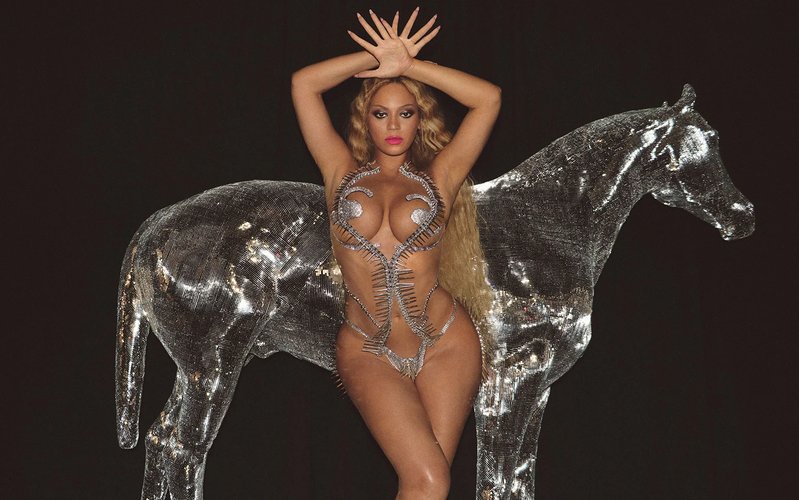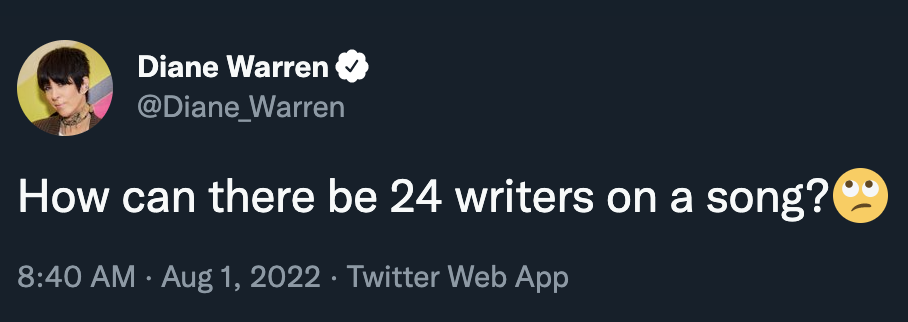
Beyoncé, aka Queen B, released her latest album, “Renaissance,” on July 29, 2022. It’s her first solo record since “Lemonade” in 2016.
Music lovers gravitate toward Beyoncé’s music because of her infectious, dance-able beats. But also — Beyoncé is Beyoncé. For so many people, she can do no wrong. Still, her latest release generated some controversial opinions.
Sound & Vision Senior Producer Rachel Stevens talks about the buzz behind “Renaissance” with fellow fans from the B Hive: KEXP Afternoon Show Host Larry Mizell Jr., Stas Thee Boss, and KUOW Arts and Culture Reporter Mike Davis. Listen to the conversation and read some highlights below. Make sure to subscribe to the Sound & Vision podcast as well.
Note: Responses below have been edited for conciseness.
Rachel Stevens: “Bills, Bills, Bills” is what I specifically remember singing at age 12 (like I had any idea what bills were). Destiny’s Child was a big part of my childhood. When I found out they were from Texas — I’m from Texas — I was like, “yeah.”
Larry Mizell Jr.: It would be the “No, No, No Part 2” remix video with Wyclef Jean. I remember Wyclef strumming a guitar. Beyoncé was on a swing in slow motion, and I was like, “Hold up a second!” This song took on a new meaning for me.
Stas THEE Boss: I also remember Beyoncé from the “No, No, No” music video, but I think it was the original slow version. I was in love instantly. I knew she was going to be the breakout star.
Mike Davis: My first significant memory was “Crazy in Love” because that's when I decided that I was going to grow up and marry Beyoncé. That video? My goodness. Middle-school Mike — she had me in a place.
STB: There were no skips with the way that the transitions and sequencing happen. It feels like a DJ was responsible for that. I think it’s a concept in that you’re not supposed to skip — just let it run.
MD: As the CDC is saying “to hell with COVID restrictions and guidelines,” this is the album that we needed to usher us back into life around other people. It’s dance music. It’s feel-good music. This is just pure Black joy. She put on for the Black community. She put on the for the queer community. She put on for everybody who’s been stuck in the house who wants to get out, shake a little something, and have a little fun.

LMJ: There should have been more songwriters on joints like The Beatles. Hip-hop and R&B understand that music is building upon the shoulders of the people who came before you. It comes from sample culture. I am blown away by the litany of legends represented on this record. This sounds super organic, lush, deep — all the good stuff.
MD: It just feels like an attack on our [Black] culture. Every piece that [Beyoncé] borrowed from — everything that she sampled — everybody who wrote on that has to be credited. So, when you have folks from white culture coming in and making those types of statements, they know what’s going on. They understand that Beyoncé didn’t actually have 26 people sitting down with a pen. Don’t attack our culture for no reason. Don’t try to shame us because we care about those who came before us.
STB: All these legends that are credited on there are getting a little piece from Beyoncé’s pockets. That’s significant, so you’ve got to appreciate her wanting to give back as well.
LMJ: I was born in the 70s. I remember in the early 80s, “spaz,” “dweeb,” and “dork” were the same kind of word. Method Man said “spazzola.” N.E.R.D. said “spaz if you want to.” “Spaz” has been around forever and has a very different meaning to Black Americans and probably lots of Americans in general. But, if it’s thought to be a slur in [the disabled] community, then I don’t think there’s anything wrong with being sensitive to that. It’s interesting that we live in an age where an album could come out and be tweaked after it’s been released.
MD: When it happened to Lizzo, it felt like a real “two Americas” situation. I grew up very, very hip-hop, and when somebody was to “spaz” on a track, that meant you’d better go listen to that verse immediately because somebody went in and killed it. I understand that cultures change, but I always feel protective of our [Black] culture. I just never feel good about outsiders coming in, but it’s on artists to make their decision, ultimately.
LMJ: It advances an understanding of dance music. I feel like we had a really dumb conversation when the new Drake album came out. People were acting like people haven’t been mixing house into stuff. This kind of cleared all that out. Music has been advancing and changing and mutating this whole time. It’s the new Beyoncé album! It takes over everything. She’s like the new Dr. Dre. You know how Dre used to drop and then everything would change? That’s Beyoncé now, so I think this is a real important statement.
STB: It’s important for queer folks. It’s all kind of dance- and house-forward and has afrobeats. She’s like “hey, love you all.” She gave a tribute to her uncle, who passed away from AIDS and was queer. Also, the song “Church Girl” connecting to her gospel roots and flipping it to a twerk song was brilliant. It’s something that a church girl like me could resonate with.
MD: Beyoncé is so good at this. The range of Beyoncé vocally is immaculate. You’ve got techno, disco, house, bounce, afrobeats — all these pieces she put together in an extremely fun and digestible album that we needed.
LMJ: "Virgo’s Groove"
STB: "America Has a Problem'
MD: "Thique"
KEXP is celebrating our 50th anniversary this year, and we're looking back at the last half-century of music. Each week in 2022, KEXP pays homage to a different year, and our writers are commemorating a song from that year that resonates with them. This week, KEXP's Dusty Henry looks at Jeff Buckle…
In KEXP's weekly series Living Singles, KEXP staff contributors highlight three brand new singles that are resonating with them right now. Martin Douglas discusses his picks alongside Sound & Vision interim producer Rachel Stevens.
Each week, Music Director Don Yates shares brief insights on new and upcoming releases for KEXP's rotation.